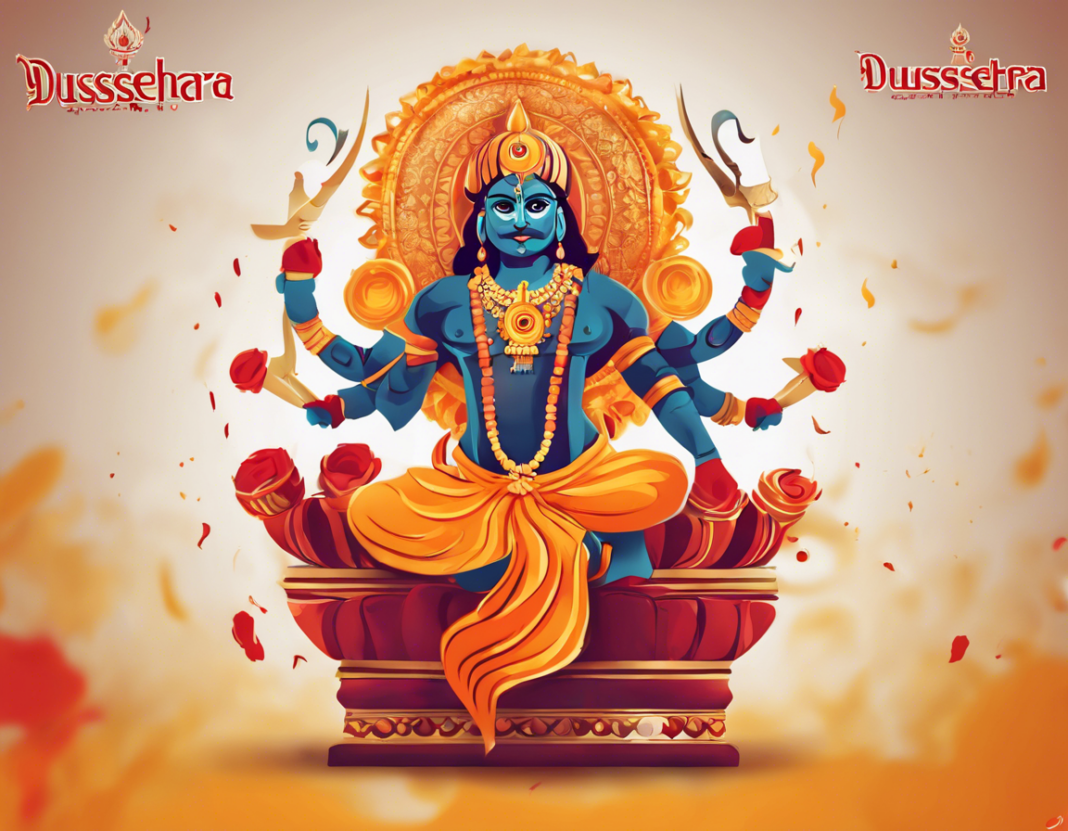As we approach the vibrant and celebratory festival of Dussehra, it is a time of joy, reflection, and the triumph of good over evil. Also known as Vijayadashami, this auspicious occasion is celebrated with great enthusiasm across India and by Hindu communities worldwide. Dussehra holds significant cultural and religious importance, marking the victory of Lord Rama over the demon king Ravana, symbolizing the victory of righteousness over evil forces.
In this comprehensive guide, we delve into the various aspects of Dussehra, including its history, traditions, rituals, significance, and how it is celebrated in different parts of the country.
History of Dussehra
Dussehra is derived from the Sanskrit words “Dasha” and “Hara,” which mean “remover of bad fate.” The festival primarily commemorates the legendary victory of Lord Rama over the demon king Ravana, who had abducted Rama’s wife, Sita. The epic battle between Rama and Ravana lasted for ten days, culminating in the triumph of good over evil on the day of Vijayadashami.
Significance of Dussehra
Dussehra symbolizes the victory of truth over falsehood, righteousness over sin, and light over darkness. It serves as a reminder of the eternal principles of dharma (duty/righteousness) and karma (actions), emphasizing the importance of upholding moral values and principles in life.
Rituals and Traditions
-
Ramlila: One of the most prominent traditions associated with Dussehra is the staging of Ramlila, a dramatic reenactment of the epic Ramayana depicting the life story of Lord Rama. The Ramlila performances culminate on the final day with the burning of effigies of Ravana, Meghnad, and Kumbhakaran, signifying the victory of good over evil.
-
Vijayadashami Puja: On the day of Dussehra, devotees perform special rituals and prayers to seek the blessings of Lord Rama and Goddess Durga. Many people also conduct Ayudha Puja, worshipping tools, instruments, and vehicles as a symbol of gratitude for their role in livelihood.
-
Durga Puja: In several parts of India, including West Bengal, Dussehra coincides with the culmination of Durga Puja, a ten-day festival dedicated to the worship of Goddess Durga and her triumph over the buffalo demon, Mahishasura.
Regional Celebrations
-
North India: In North India, Dussehra is celebrated with great fervor, with grand processions, cultural performances, and fairs organized in various cities. The burning of Ravana’s effigy is a major highlight of the festivities.
-
South India: In the southern states, Dussehra is marked by the display of colorful and elaborate dolls and figurines known as “Bommai Kolu” or “Golu,” along with the worship of deities and traditional dances like Dandiya and Garba.
-
East India: The festival of Dussehra is celebrated as a part of Navratri and Durga Puja in West Bengal, where beautifully crafted pandals (temporary structures) house idols of Goddess Durga for worship.
FAQs (Frequently Asked Questions)
1. What is the significance of burning effigies on Dussehra?
Burning effigies on Dussehra symbolizes the destruction of evil forces, with the victory of good over evil, as depicted in the mythological story of Lord Rama’s triumph over Ravana.
2. What is the importance of Ramlila during Dussehra celebrations?
Ramlila performances reenact the story of the Ramayana, emphasizing moral values and principles upheld by Lord Rama. It serves as a cultural and theatrical representation of the victory of righteousness.
3. How is Dussehra celebrated in different parts of India?
Dussehra celebrations vary across regions, with rituals like Ramlila, Vijayadashami Puja, Ayudha Puja, and Durga Puja being observed in unique ways in North, South, and East India.
4. What is the connection between Dussehra and Navratri?
Dussehra marks the culmination of Navratri, a nine-night festival dedicated to the worship of the Goddess Durga, with each day representing a different form of the divine feminine.
5. What are some traditional foods prepared during Dussehra?
Special dishes like puri, aloo ki sabzi, jalebi, and other sweets are commonly prepared during Dussehra to offer as prasad (offering) to deities and share with family and friends.
